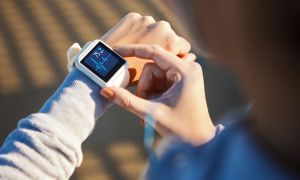If you have diabetes, regardless of how many snacks your meal plan includes, portion sizes are the key to controlling your blood glucose and avoiding weight gain. So, resist those trips to the vending machine—plan ahead and pack a healthy snack! If you have diabetes, it is recommended that you eat foods with low carbohydrates. The following are healthy snacks that are low in carbohydrates:
Snacks with less than 5 grams of carbohydrate:
- 3 celery sticks + 1 tablespoon of peanut butter
- 5 baby carrots
- 5 cherry tomatoes + 1 tablespoon ranch
- 1 hard-boiled egg
- 1 cup cucumber slices + 1 tablespoon ranch dressing
- 1/4 cup of fresh blueberries
- 1 cup of salad greens, 1/2 cup of diced cucumber, and with vinegar and oil
- 1 frozen sugar-free popsicle
- 1 cup of light popcorn
- 2 saltine crackers
- 10 gold-fish crackers
- 16 green olives
- 1/2 cup sugar-free gelatin
- 1 piece of string cheese stick
- 2 Tablespoons pumpkin or sesame seeds
- 1/4 of a whole avocado (4 g)
About 10-20 grams of carbohydrate:
- 1/2 cup almonds or other nuts
- 1/4 cup dried fruit and nut mix
- 1 cup chicken noodle, tomato (made with water), or vegetable soup
- 1 small apple or orange
- 3 cups light popcorn
- 1/3 cup hummus + 1 cup raw fresh cut veggies (green peppers, carrots, broccoli, cucumber, celery, cauliflower or a combination of these)
- 1/4 cup cottage cheese + 1/2 cup canned or fresh fruit
- 1 cheese quesadilla (made with one 6-inch corn or whole wheat tortilla + 1 oz shredded cheese) + 1/4 cup salsa
- 2 rice cakes (with a 4-inch diameter) + 1 tablespoon peanut butter
- 5 whole wheat crackers (or 3/4 oz) + 1 piece of string cheese
- 1/2 turkey sandwich (1 slice whole wheat bread + 2 oz turkey + mustard)
- 1/2 cup tuna salad + 4 saltines
About 30 grams of carbohydrate (good to eat before exercise):
- 1/2 peanut butter sandwich (1 slice whole wheat bread + 1 Tablespoon peanut butter) + 1 cup milk
- 6 oz light yogurt + 3/4 cup berries (blueberries, blackberries, raspberries, or a combination of these)
- 1 English muffin + 1 teaspoon low-fat tub margarine
- 3/4 cup whole grain, ready-to-eat cereal + 1/2 cup fat-free milk
- 1 medium banana + 1 tablespoon peanut butter
Snacks that are nutrient rich can be a great way to curb your hunger and control your blood sugar- make sure they are preplanned and try to take into consideration the carbohydrates, fiber and protein. I suggest looking for a snack around 15 grams of carbohydrates and then making sure it is a good source of fiber and protein such as wheat crackers and string cheese, cottage cheese and berries, nuts and a piece of fruit just to name a few examples.
Continue Learning about Diabetes
Important: This content reflects information from various individuals and organizations and may offer alternative or opposing points of view. It should not be used for medical advice, diagnosis or treatment. As always, you should consult with your healthcare provider about your specific health needs.





